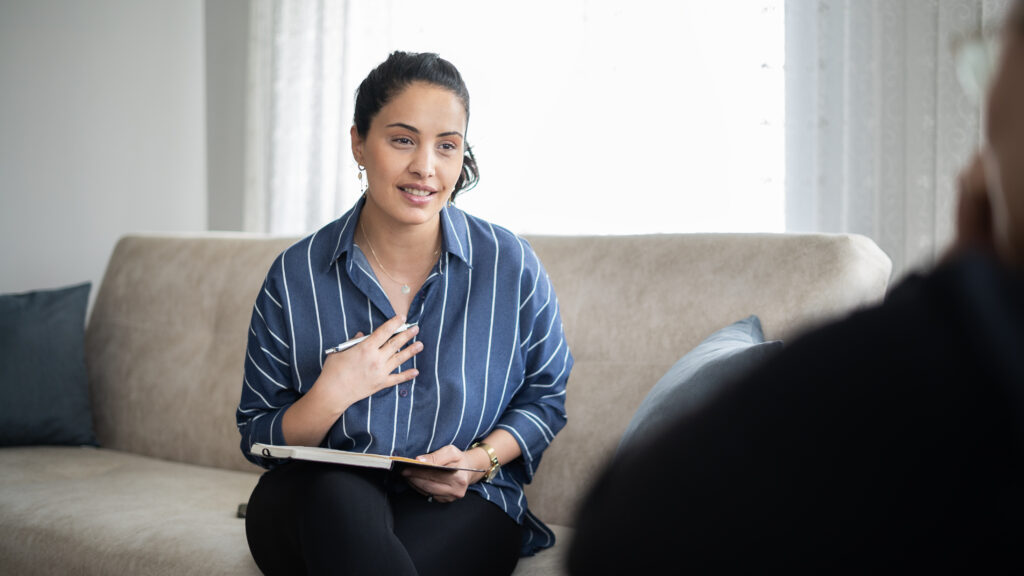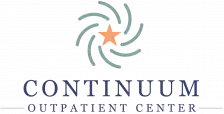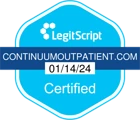Partial Hospitalization Program for Stimulant Addiction Recovery
Written and medically reviewed by the clinical team at Continuum Outpatient Center, including licensed therapists, addiction specialists, and medical professionals.
Partial Hospitalization Program for Stimulant Addiction: What is a PHP?
A partial hospitalization program (PHP) is a type of treatment program that offers an intensive level of care while allowing patients to live at home. These programs often utilize various forms of counseling. This includes individual counseling, group therapy, family counseling, and addiction education.
A PHP involves several hours of therapy each day, for multiple days each week. Treatment length can vary, depending on individual needs and circumstances, but often ranges from a few weeks to several months.

What Are the Benefits of a PHP?
Key Advantages of a Partial Hospitalization Program for Stimulant Addiction
- Flexibility: The flexibility of a PHP balances treatment with the ability to engage in daily life. This provides a more sustainable transition to routine life.
- Comprehensive Care: Comprehensive care does not just address the addiction. It also addresses underlying mental health issues, physical health, and lifestyle factors. Therapy is tailored to individual needs, enhancing the effectiveness of the treatment.
- Peer Support: Peer support and group sessions foster a sense of community and mutual support. This support is essential for recovery.
- Family Involvement: Family involvement engages family members in the recovery process. This helps to improve relationships and build a support network.
Statistics on Stimulant Addiction Treatment
Tailoring Treatment to Stimulant Addiction
Partial Hospitalization Program for Stimulant Addiction: Comparing a PHP to Other Treatment Options
Inpatient Rehab
Outpatient Programs
Medication-Assisted Treatment (MAT)
MAT combines medication with counseling and behavioral therapies. It’s used to treat opioid and alcohol addiction. Its role in stimulant addiction is more limited.
Medication-assisted treatment involves specific medications to reduce cravings and withdrawal symptoms.4 MAT can be a component of PHP, inpatient, or outpatient programs. Its use depends on the addiction type and treatment plan.
Key Differences in Summary
Partial Hospitalization Program for Stimulant Addiction: Structure and Components of These Programs
Therapeutic Sessions
- Individual Therapy: These are one-on-one sessions with a therapist, focusing on personalized issues related to addiction.
- Group Therapy: This involves facilitated sessions where participants share experiences and learn from others in a supportive environment.
- Family Therapy: Family therapy involves family members to address relational issues and improve family dynamics.
Educational Workshops
- Addiction Education: These workshops teach about the nature of addiction, its effects on the brain, and strategies for recovery.
- Life Skills Training: Life skills training focuses on skills like stress management, financial planning, and healthy lifestyle choices.
Psychiatric Care
- Mental Health Assessment: This involves the evaluation of co-occurring mental health disorders.
- Medication Management: If needed, medications are prescribed and monitored, especially for co-occurring conditions.
Holistic Approaches
Regular Monitoring
Aftercare Planning
Relapse Prevention
Partial Hospitalization Program for Stimulant Addiction: Integration of Medical Services, Counseling, and Behavioral Therapies
Medical Services
Counseling
Behavioral Therapies
Cognitive-behavioral therapy (CBT) helps change harmful thinking and behavior patterns related to stimulant use.
Partial Hospitalization Program for Stimulant Addiction: Role of Medication-Assisted Treatment
While MAT is a cornerstone in the treatment of opioid and alcohol addiction, its role in treating stimulant addiction is more nuanced and evolving.
Impact on Recovery
Integration of MAT
Partial Hospitalization Program for Stimulant Addiction: Evidence-Based Treatment Modalities
Cognitive Behavioral Therapy
Motivational Interviewing
Contingency Management
Group Therapy
Involves structured group sessions led by a therapist, focusing on shared experiences and mutual support. Group therapy encourages peer support, reduces feelings of isolation, and enhances social skills.
Family Therapy
Partial Hospitalization Program for Stimulant Addiction: Success Rate and Long-Term Sobriety
Comprehensive Approach
Skill-Building
Considerations for Success

Partial Hospitalization Program for Stimulant Addiction at Continuum
What We Offer
Contact Us Today
If you or someone you know could benefit from a PHP for stimulant addictions, contact us today. Our dedicated team of professionals is ready to help you navigate your journey to recovery.
Resources
- https://www.ncbi.nlm.nih.gov/pmc/articles/PMC2848466/pdf/PE_7_2_28.pdf
- https://www.ncbi.nlm.nih.gov/pmc/articles/PMC3077529/
- https://www.ncbi.nlm.nih.gov/pmc/articles/PMC5047716/
- https://nida.nih.gov/research-topics/opioids/medications-opioid-overdose-withdrawal-addiction-infographic
- https://www.ncbi.nlm.nih.gov/pmc/articles/PMC8422902/


